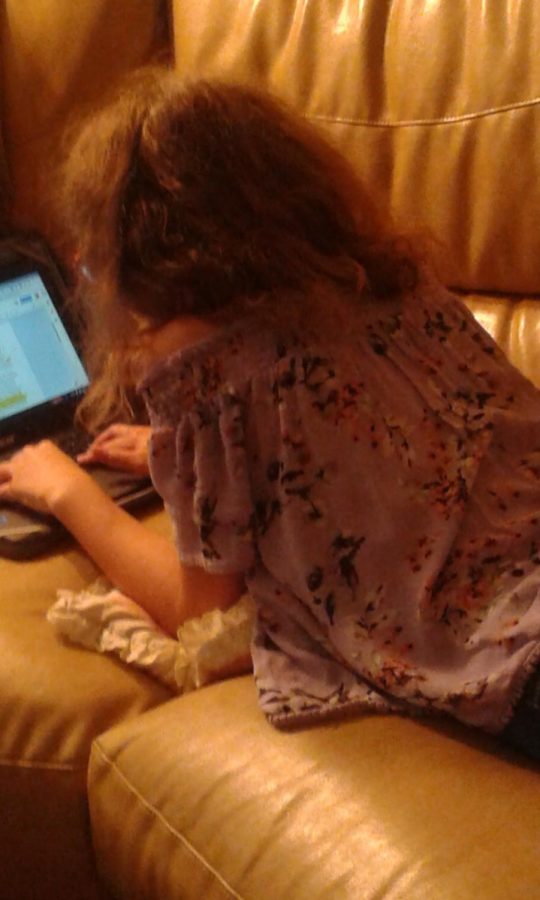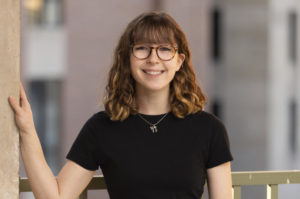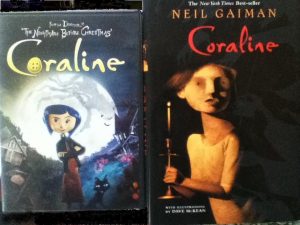Katie Knight finishes English for grades 9-12 by her sophomore year in ATYP
Knight working hard on an essay. “ATYP was a lot of work, but a lot of fun and I am glad that I did it,” she said. Photo courtesy Kimberly Knight.
September 29, 2018
7th grader Katie Knight walks in the class ready to take her SAT for the second time, feeling tired and nervous, yet excited. The year before she had walked into the same room, not fully wanting to take the test, but knowing that it was a necessity to get into the ATYP program. She approached the test the second time determined to do better than she had the first time: “I felt bad. I knew I wanted to prove myself, and also that is cost money,” she said.
Her commitment paid off: she earned the qualifying score on the test and was admitted to the program. To qualify for the language arts program, her English + reading scores on the SAT test, normally taken by juniors in high school, had to be greater than 46, with neither below 22, despite the fact that she was taking it four years early.
Once admitted, she attended Western Michigan University (WMU) once a week for two years, taking classes with the Academically Talented Youth Program (ATYP). She completed the program at the end of Freshman year, and the work she did there counts for all of her high school English credits. While she did decide to take this year off from English, she will go back as a junior for the additional challenge of IB1 and 2.
Prior to participating in ATYP, Knight also participated in a similar program called E-Squared (Enrichment and Extension). E-Squared is a program for children in grades 3-5. Like ATYP, students have to pass an assessment called the Otis-Lennon School Ability Test (OLSAT). Every student takes this test in third grade, yet only a select few make it through. Right from the start, Knight was destined for greatness.
Knight’s experiences with ATYP were mostly pleasant ones. Her most enjoyable memories in the program were days when the class had a guest speaker. On those days, the class got to relax, do art, and take a break from their regular hard-work, such as essays.
During the program, Knight met many new friends, one of whom was Allie Miller, who says that, “ATYP has changed my life in the sense that it has taught me how to manage stressful situations. There’s been many times where the work load that goes along with ATYP can seem extremely overbearing, but it’s only preparing me for the future.”
Both Knight and Miller were just proud that they made it through to the end, especially considering the extensive amount of work given every week. Knight’s mother Kimberly says that she is, “most proud of the effort she put into everything she submitted to her teachers. Her writing improved a great deal over the two years.”
This program has set up a potentially very successful future for Knight, as ATYP will be an eye catching accomplishment on her future college applications and resumes. She doesn’t yet know where she wants to go to college, but her mother has high hopes for her daughter: “I pray that her time in college will be successful and help lead her to a fulfilling career,” she says.
Knight had a lot of fun and obtained very valuable knowledge in this part of her life, and she says that she would recommend ATYP to others. It was a great accomplishment, and everyone who surrounds her can see her potential to achieve even greater things throughout her life.









